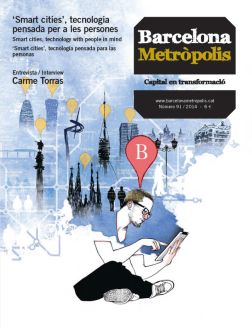In a short space of time, the concept of the smart city has ceased to be technological fantasy and has gained a social dimension. Smart has become the inescapable prefix for labelling areas of our lives ranging from transport to health, logistics, phones and waste management. Today a smart city is synonymous with a connected city, conceived for sustainability and energy efficiency, but also oriented towards effective knowledge transmission. Barcelona, Mobile World Capital and promoter of the City Protocol, already occupies fourth position in the 2013 Smart City ranking and stands out as an example of good practice in the field of urban intelligence.
The future of our cities will inevitably be smart, but we cannot ignore the uncertainty hanging over this new world. Smart cities feed on personal data that make each one of our actions valuable information. The crossover of these data opens up new possibilities for synchronising people and improving public services, but it could also become a means of control. At the same time that cross-cutting smart policies are emerging, we hear critics calling for a democratic model for smart technologies.
- The whole city on your mobile, by Anna Carrió
- Protocols for developing new cities, by Joaquin Elcacho
- Not only smart, but a creative talent, by Karma Peiró
- Technologies for improving logistics and travels, by Mònica L. Ferrado
- Doctor Smart on the phone, by Mònica L. Ferrado
- The challenges of Smart Barcelona, by Albert Cuesta
- Smart cities with no future?, by Gemma Galdón Clavell
- Intelligence at the service of people, by Manu Fernández




